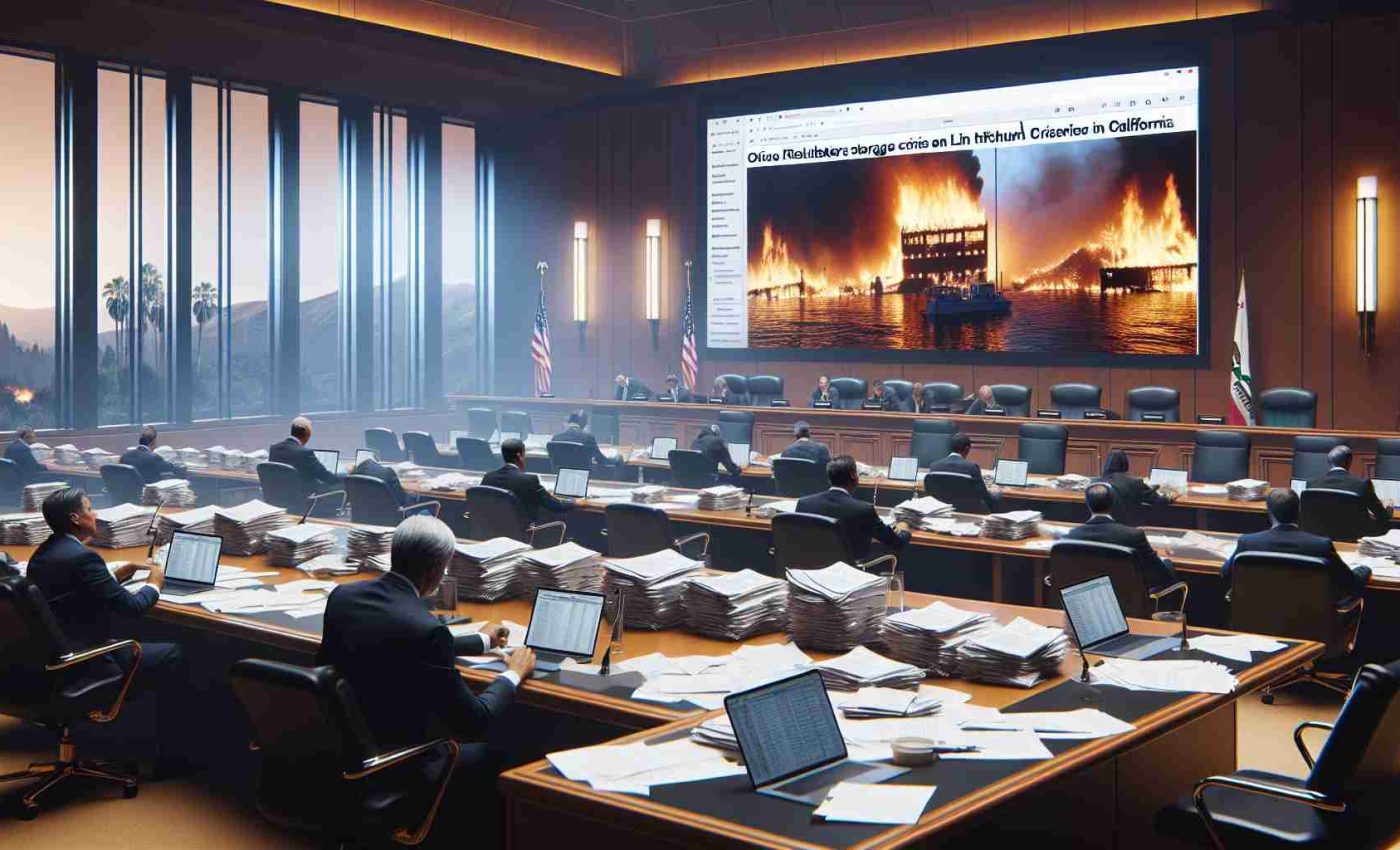- Assemblymember Dawn Addis introduces legislation AB 303 to enhance local control over lithium battery storage permitting.
- The bill addresses safety concerns by establishing a minimum distance of 3,200 feet from sensitive areas such as schools and homes.
- Critics are calling for stricter oversight and an independent investigation into the causes of recent incidents at the Moss Landing facility.
- Community members express concerns regarding safety and advocate for more stringent regulations in the lithium battery industry.
- There is a strong emphasis on preventive measures, highlighting that investing in safety is more cost-effective than emergency responses.
- The community seeks accountability and improved safety standards as California pursues its renewable energy goals.
In the wake of a significant fire at the Vistra lithium battery storage facility in Moss Landing, Assemblymember Dawn Addis is taking action to prevent future disasters. On January 23, she announced new legislation, AB 303, aimed at restoring local control over lithium battery storage permitting, which she believes is vital for community safety.
This proposed bill seeks to repeal the expedited processes established by AB 205, a budget bill passed in 2022 that aimed to accelerate clean energy projects without mentioning the risks associated with lithium. By establishing a minimum distance of 3,200 feet from sensitive areas like schools, homes, and flood zones, AB 303 aims to protect both the environment and public health.
Critics of the current regulations, including Monterey County Supervisor Glenn Church, echoed Addis’s concerns, highlighting the need for stringent oversight in this emerging industry. After multiple incidents at the Moss Landing site, both church and Addis are calling for an independent investigation by the California Public Utilities Commission to deeply understand the fire’s cause and improve safety standards.
Community response has been overwhelming, with residents expressing their worries about safety and the need for stricter regulations. With a focus on prevention, they emphasize that the high cost of responding to emergencies far outweighs the investment in safety measures.
Their united voice sends a clear message: Ensuring the safety of lithium battery storage is non-negotiable. As California navigates its renewable energy goals, the community demands accountability and reliable safety measures, striving to prevent another disaster like the one at Moss Landing.
New Legislation Aims to Enhance Safety for Lithium Battery Storage in California
Background
The recent fire at the Vistra lithium battery storage facility in Moss Landing has catalyzed significant concerns regarding safety regulations for lithium battery storage in California. In response, Assemblymember Dawn Addis has introduced new legislation—AB 303—that seeks to reverse provisions of an earlier law (AB 205) which prioritized the rapid deployment of clean energy projects without adequately addressing safety concerns.
Key Features of AB 303
1. Local Control Restoration: AB 303 aims to empower local authorities to have a say in lithium battery storage permitting processes, ensuring community input and oversight.
2. Minimum Distance Requirements: The bill proposes to establish a mandatory minimum distance of 3,200 feet from sensitive areas such as schools, homes, and flood zones, thereby mitigating risks to public safety.
3. Increased Oversight: The legislation advocates for increased scrutiny of the lithium battery storage industry, which has seen a rise in fire incidents, emphasizing the importance of stringent regulations.
Pros and Cons
Pros:
– Enhances community safety and environmental protection.
– Restores local government authority on permitting.
– Aims to prevent similar incidents in the future through stricter regulations.
Cons:
– Could slow down the deployment of clean energy projects.
– May lead to increased costs for energy providers due to heightened regulatory requirements.
– Resistance from industry stakeholders who favor expedited processes.
Market Insights and Trends
The demand for lithium battery storage is expected to grow significantly as California aims to meet its renewable energy targets. However, incidents like the one in Moss Landing could lead to stricter regulations that may impact market growth. According to industry forecasts, safety and sustainability will become increasingly critical factors influencing the market landscape.
Related Questions
1. What is the current state of lithium battery storage regulations in California?
The current regulations streamlined the approval process for lithium battery storage, which critics argue has led to insufficient safety measures. The introduction of AB 303 aims to rectify these concerns by reinstating more thorough review processes.
2. How could AB 303 impact clean energy initiatives in California?
While AB 303 focuses on safety and public health, it may potentially slow down the growth of clean energy projects by reintroducing a longer permitting process. This could create tension between safety advocacy and the urgency of clean energy deployment.
3. What community actions have been taken in response to the fire at Moss Landing?
Community members have voiced their concerns for safety and demanded stricter regulations for lithium battery storage facilities. There are calls for independent investigations into the incident and a push for the formulation of new safety measures to prevent future disasters.
Conclusion
With the introduction of AB 303, California is taking significant steps to ensure the safety of its lithium battery storage industry while balancing the need for renewable energy development. By emphasizing local control and stringent safety standards, lawmakers aim to prevent further disasters and protect communities.
For more information on renewable energy initiatives in California, visit California Energy Commission.







